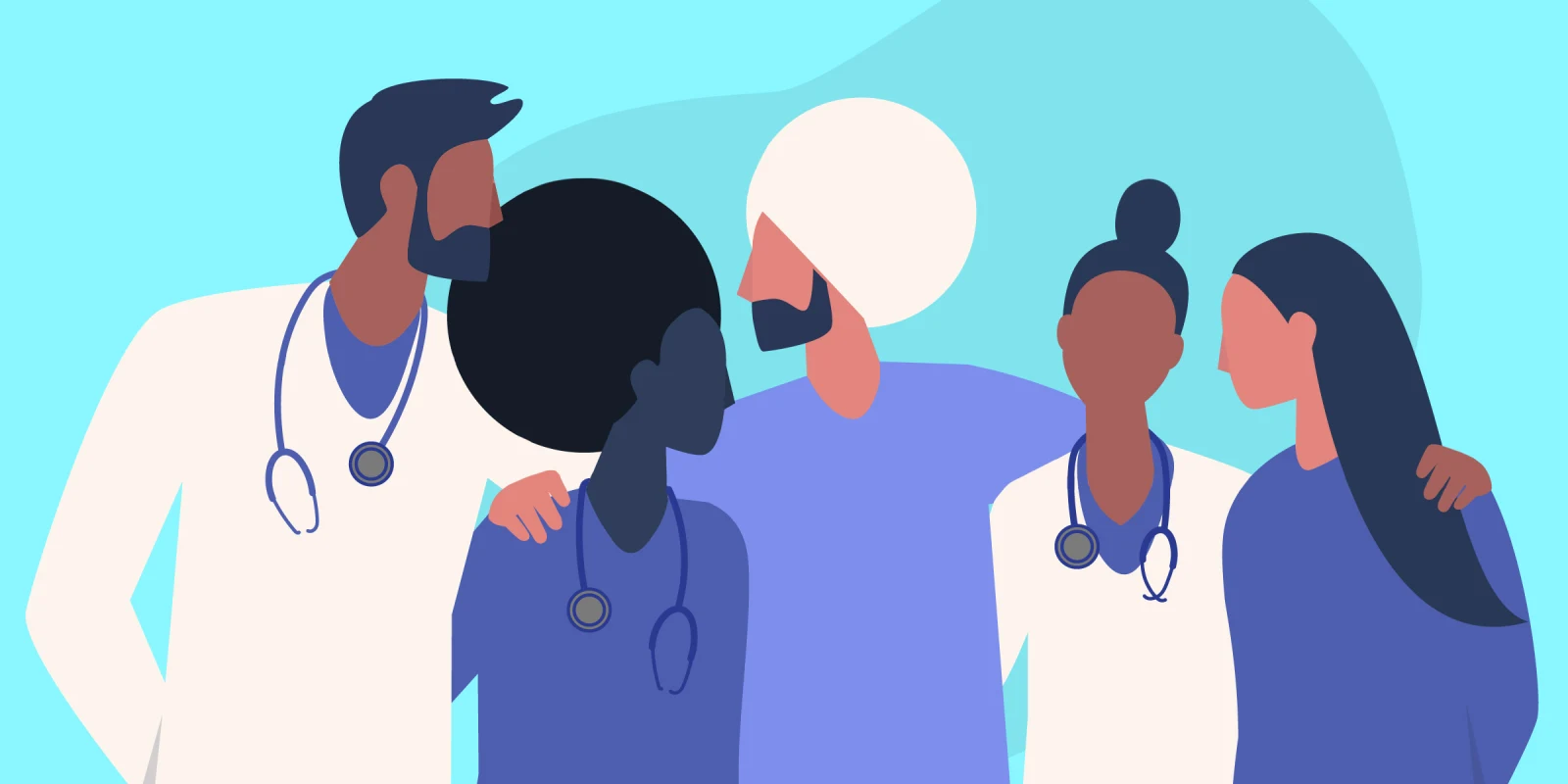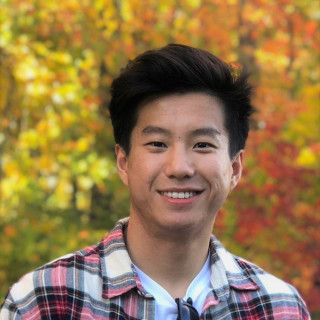As someone who started medical school in 2020, I faced numerous unexpected challenges. But the biggest by far was social — I was unable to make, and sustain, meaningful connections with classmates. How could I, when they only appeared as tiny rectangles in my video screen, faces that disappeared once class was over?
Making friends in medical school is not just a personal desire, but a widely-recognized imperative. Building friendships helps you establish your future professional network, and in the day-to-day grind of medical school, having friends who are going through the same struggles makes the educational journey much more bearable. These peer networks create much needed study partners, not to mention people to rely on throughout the long hours of the night.
For me, when school began in person in 2021, I made a conscious effort to seek community with my peers. Below, I offer strategies to improve community building as you go through your own medical school journey.
1) Be intentional.
Once school resumed in person, one thing that I found helpful in getting to know my classmates beyond the surface level of their interests and hometown was to be direct with my invitations to spend time together. I would ask people to walk around campus, or to get coffee or lunch, rather than hit them with a vague “let’s meet up sometime.”
The main way I ensured hangouts would actually happen was by being flexible. I was open to times and locations others suggested, even if they weren’t ones I would choose. I’d also try to compromise; for example, if one time we met up close to where I live, the next time we’d meet up close to where they lived.
However, it’s hard to be so intentional and direct. In many ways, it can be quite vulnerable to reach out, and to not get responses can be emotionally and mentally draining. As someone who was and still is very shy, especially in new social settings, putting myself out there is something I struggle with. For me, though, what made medical school different was knowing that I was in it together with my fellow students, that though we might have been strangers, we already had shared experiences and worries to bond over.
Moreover, in this era of rising loneliness and social media, it can never hurt to try to connect. Many times during my clinical rotations, I felt isolated; even though I was surrounded by patients, residents and attendings, and the other hospital staff, I could go days without seeing other medical students. Knowing that I had friends and peers I could reach out to, especially when I was struggling, enabled me to feel safe. Having med student friends helped me see that others were going through the same struggles and had the same concerns — it made me more empathetic, and more optimistic about my own ability to persevere.
2) Be kind to yourself.
My busiest time during medical school was my clinical rotation year. With schedules constantly changing depending on the rotation, it was difficult to consistently make room for friends or to even have the energy to reach out. I realized during this time that the next key to community building, especially when you’re going through difficult and busy seasons of life, is to be kind to yourself. If you can’t make it this week, you can make it next week. We all go through difficult periods at different points, and when those storms hit, it’s important to take shelter and care for ourselves.
This self-compassion can also be useful when applied to others. When I wonder why people aren’t available to spend time together, I remember: Everyone has different social batteries and different priorities. Not everyone is going to match your expectations or requests. And that’s OK. That’s not a personal indictment on you — everyone walks a different path. They may well reach out sometime down the road.
3) Be open.
As an only child who moved around a lot while growing up, my automatic defense mechanism when stressed or upset was to retreat into myself. I never liked to voice my concerns or worries with others, because I never had someone like that to vent to as a child. Over time, I also came to believe that other people didn’t deserve my burdens, and so to protect others, I’d fight my demons all alone.
However, now more than halfway through medical school, I’ve realized how shortsighted that thinking was. Medical school presents its own unique challenges, especially with the sudden expectations and responsibilities thrust upon us. Without friends to open up to, especially friends that understand how we’re feeling, our mental health can suffer.
Though it didn’t come naturally to me, the first time I went out of my comfort zone and opened up about a stressful event in my life, I immediately saw the benefits. I remember the instance well: I was talking to a med student friend about a difficult working relationship with my team when I was on the labor and delivery night shift. Instead of being met with silence and vague platitudes, my friend shared a similar story and even gave me actionable advice. I realized then that had I remained closed off about what I was going through, I would have chosen the most deleterious option for my well-being — and in so doing perpetuated the toxic silence we often see in a field where clinicians are expected to put ourselves second, third, or even last.
I also realized that contrary to my fears of being a burden, my candor made me seem approachable and understanding. Thus, the more I spoke up, the more my friends did as well. Together, we found solutions and reassurance, as well as a renewed sense of affirmation and strength to get through the obstacles that lay ahead.
Being open also benefits you in another way: It allows you to really reflect on yourself — your values, your beliefs, and your past communication style. By opening the door for others, you simultaneously invite yourself to explore who you are.
Finally, openness can help you stay grounded. Over the four years of medical school, we learn how to take care of others, how to work effectively with others, and how to impress others with our work ethic. In doing so, we become almost exclusively other-focused: We lose our identity and values for the sake of presenting our best selves to those who evaluate and judge us. I have found that being intentional about openness and self-reflection can help bolster against this identity loss. It can stop us from becoming robotic and insincere.
I leave you not with words of wisdom or reassurance. I’m still going through these growing pains, and learning these same things. But I do want to let you know that you are always worth being friends with. And if you do allow yourself to be opened up to new possibilities and friendships, I think you’ll be surprised at how these communities can support your well-being, and how eager your peers are to be that community for you.
Friendship and connections in medical school can take all shapes and forms. Some of these relationships may be cursory, others more regular and personal. But it’s up to us to fully utilize the benefits — from emotional support to professional advice to study resources. No person is an island, and by building bridges to those we share this journey with, we not only become better students and friends, but eventually, better caregivers and physicians.
What are your best memories from your medical school friendships? Share in the comments!
David Xiang is a third-year medical student at Harvard Medical School, aspiring to be a physician-writer. He enjoys writing poetry and fiction, playing ukulele, and playing basketball with classmates. He also makes comedy skits on TikTok @confused.med.student. David was a 2022–2023 Doximity Op-Med Fellow.
Image by nadia_bormotova / GettyImages







